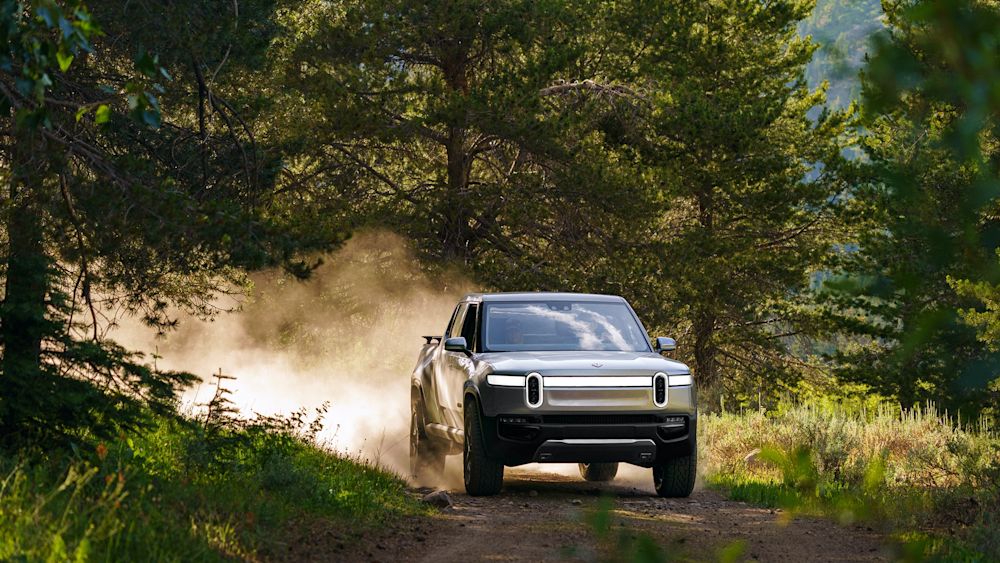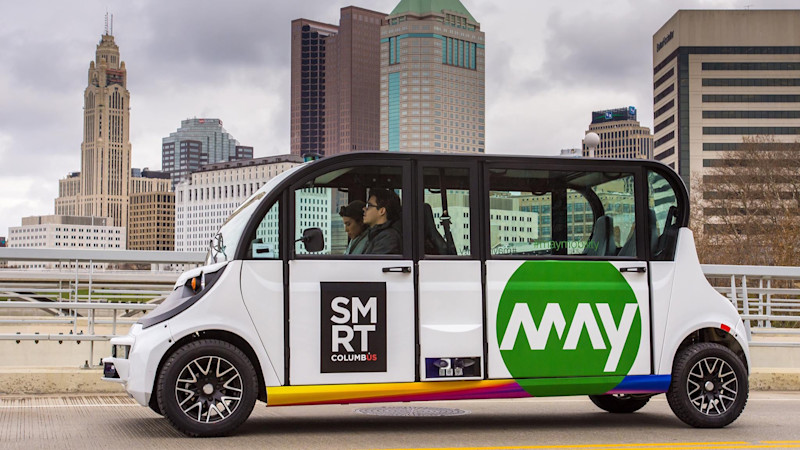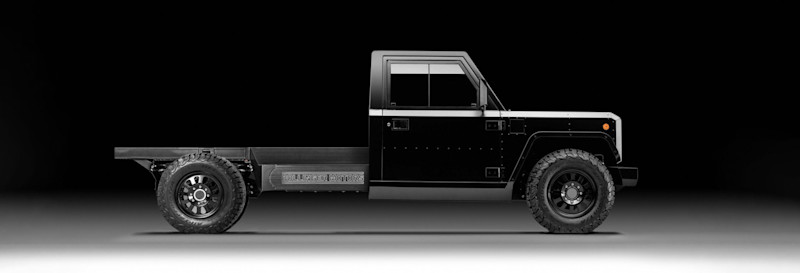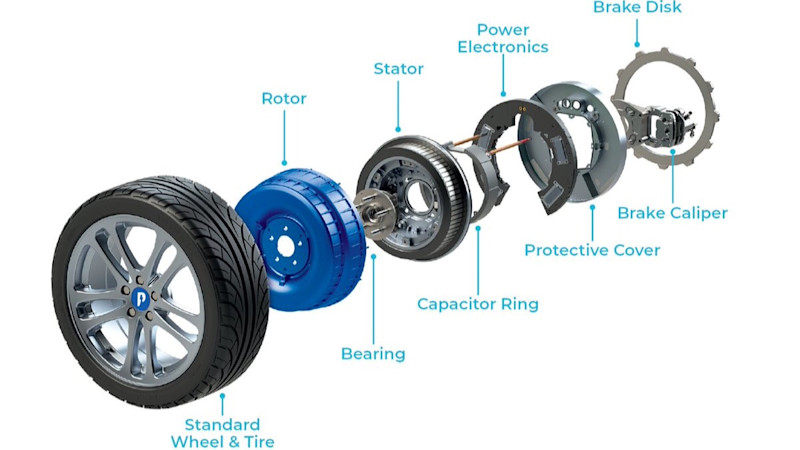- Iterate
- Meet The Team
- Innovation in the Motor City: Five Automotive Startups Designing and Building in Detroit
Innovation in the Motor City: Five Automotive Startups Designing and Building in Detroit
Table of contents
EVs aren’t new to Detroit, but today, Southeast Michigan-based automotive giants Ford, General Motors and Fiat Chrysler are investing heavily in EVs and in autonomous vehicles, from engineering to manufacturing. And electric truck maker Rivian is the city’s latest startup to boom, raising more than $5 billion in less than six months to support production.

Electric vehicles are at an inflection point. The industry has been led for years by Tesla — and still is, indisputably — but virtually every major automaker, from Porsche to Nissan, now offers an EV. Ford just launched its electric Mustang Mach E and is working on an electric F-150. Electric vehicle prices already rival new gas-powered vehicle prices and are expected to beat them by 2025 at latest. And in January, President Joe Biden called for an all-electric, American-made fleet of federal vehicles.
EVs aren’t new to Detroit, though. Detroit Electric built and sold electric cars from 1907 to 1942, according to major Detroit-area museum The Henry Ford. These cars could go as far as 100 miles on a charge, though their speeds topped out around 25 miles per hour. But because Ford’s gas-powered Model T was so cheap, it undercut most competitors and gas-powered cars became the norm.
Today, Southeast Michigan-based automotive giants Ford, General Motors and Fiat Chrysler are investing heavily in EVs and in autonomous vehicles, from engineering to manufacturing. And electric truck maker Rivian is the city’s latest startup to boom, raising more than $5 billion in less than six months to support production.
Autonomy is the other major area of innovation in the automotive sector, and Waymo builds autonomous cars in Detroit. But that industry hasn’t yet generated the returns some investors hoped for. In early 2020, mobility-focused Techstars Detroit Accelerator announced it was shutting down. Managing Director Ted Serbinski told Automotive News that the program simply didn’t raise enough money that year, chalking it up to a “sales slump” and “the trough of disillusionment with autonomy.”
However far away the dream of autonomous consumer vehicles might be, there’s still plenty of mobility innovation taking place in Southeast Michigan — and with its century-old supply chains and deep talent pool, the city’s boosters say there’s a lot more to come.
Rivian
Electric truck manufacturer Rivian, which has headquarters in greater Detroit, made headlines in January when it announced a $2.65 billion investment round. The capital infusion will allow the company to bring its two consumer vehicles, a pickup truck and a sport utility vehicle, to market this summer. Pre-orders have been open since Nov. 2019, but the company hasn’t said how many they’ve received.
If you’re interested, the R1T pickup truck starts at $67,500 and the R1S sport utility vehicle starts at $70,000. The company says both can travel more than 300 miles on a charge, can handle off-roading, and have semi-autonomous capabilities. Both are produced at a Rivian plant in Normal, Ill.
Rivian is also in the midst of building 100,000 electric vans for Amazon, which the e-commerce giant ordered in 2019 as part of its Climate Pledge. With the debut of its consumer vehicles, Rivian could be the Rust Belt’s next major auto manufacturer.
May Mobility
May Mobility has been building autonomous vehicles since its 2017 launch. Their six-passenger shuttles have been tested in a number of Rust Belt cities, including Columbus and Detroit. The company continues to operate a 3.2-mile, 20-stop autonomous route in Grand Rapids, the mid-size city in western Michigan.
In January, May Mobility began testing autonomous shuttles on public roads in Arlington, Tex., in partnership with that city, and will begin carrying passengers in March. That same month, a May Mobility shuttle will begin serving a public route on a Hiroshima University campus in Japan. The company plans to hire a Japanese team, including engineering, research and operations support, to manage that project as it grows into on-demand bus service and grocery delivery.
The company has raised more than $80 million to date and employs several hundred people, many of them at its headquarters in Ann Arbor.

Traxen
Traxen is not an automaker, but a technology developer. The startup specializes in autonomous vehicle technology, artificial intelligence, machine learning and vehicle electronics, combining those areas of expertise to develop AI-powered cruise control for long-haul trucks. iQ-Cruise, Traxen’s flagship product, reduces trucks’ fuel consumption by an average of 10%.
The technology will be available for sale in the next few months, and right off the bat, Traxen’s addressable market will include 1.8 million vehicles.
Industry experts have long suggested that long-haul trucking, which already relies heavily on big data, could be the first mobility sector to become mostly or fully autonomous. iQ-Cruise is also capable of understanding changes in road conditions, including traffic, elevation changes, and curves, as well as the weather. The more times a truck drives the same route, the more iQ-Cruise learns. For now, drivers still have to steer — but as regulations change, technology is sure to follow.
Bollinger Motors
Like Rivian, Bollinger is developing an all-electric pickup truck and SUV for the consumer market. Reservations are available now, with estimated retail prices of $125,000; the company expects production to begin in late 2021. Bollinger’s commercial offerings include a chassis and a delivery van.
Bollinger Motors moved to the Detroit area from New York in 2018. Today, the company builds two consumer vehicles, a pickup truck and an SUV, in Southeast Michigan, where it employs several hundred people.

Protean Electric
Protean Electric's technology provides propulsion and braking for electric and hybrid vehicles by directly driving the vehicle's wheels. These "hub motors" allow for faster acceleration, better handling and longer ranges than traditional automotive electric drive systems. Customers include Local Motors, where ProteanDrive powers the Olli autonomous vehicle, and ConMet, where Protean supports the PreSet Plus Electric Hub.
The company owns more than 200 patents and was acquired in July 2019 by National Electric Vehicle Sweden for an undisclosed sum. Protean Electric maintains its headquarters in the United Kingdom with operations in the Detroit area and in China.

--
The Org is a professional community where transparent companies can show off their team to the world. Join your company here to add yourself to the org chart!
In this article


The ORG helps
you hire great
candidates
Free to use – try today